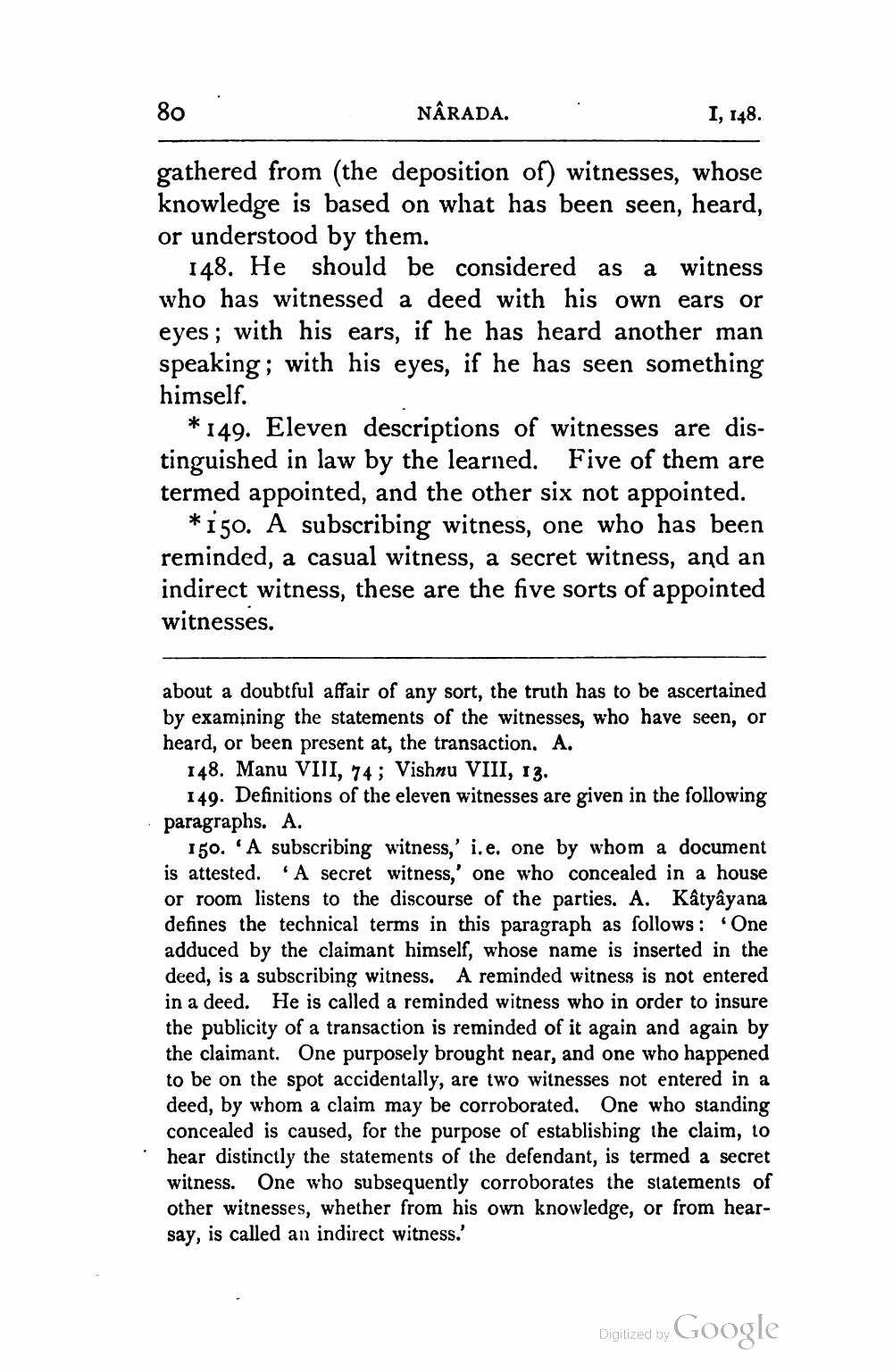________________
80
.
NARADA.
I, 148.
gathered from the deposition of) witnesses, whose knowledge is based on what has been seen, heard, or understood by them.
148. He should be considered as a witness who has witnessed a deed with his own ears or eyes; with his ears, if he has heard another man speaking ; with his eyes, if he has seen something himself.
* 149. Eleven descriptions of witnesses are distinguished in law by the learned. Five of them are termed appointed, and the other six not appointed.
*150. A subscribing witness, one who has been reminded, a casual witness, a secret witness, and an indirect witness, these are the five sorts of appointed witnesses.
about a doubtful affair of any sort, the truth has to be ascertained by examining the statements of the witnesses, who have seen, or heard, or been present at, the transaction, A.
148. Manu VIII, 74; Vishnu VIII, 13.
149. Definitions of the eleven witnesses are given in the following · paragraphs. A.
150. 'A subscribing witness,' i.e. one by whom a document is attested. A secret witness,' one who concealed in a house or room listens to the discourse of the parties. A. Kâtyâyana defines the technical terms in this paragraph as follows: One adduced by the claimant himself, whose name is inserted in the deed, is a subscribing witness. A reminded witness is not entered in a deed. He is called a reminded witness who in order to insure the publicity of a transaction is reminded of it again and again by the claimant. One purposely brought near, and one who happened to be on the spot accidentally, are two witnesses not entered in a deed, by whom a claim may be corroborated. One who standing concealed is caused, for the purpose of establishing the claim, to hear distinctly the statements of the defendant, is termed a secret witness. One who subsequently corroborates the statements of other witnesses, whether from his own knowledge, or from hearsay, is called an indirect witness.'
Digitized by Google




